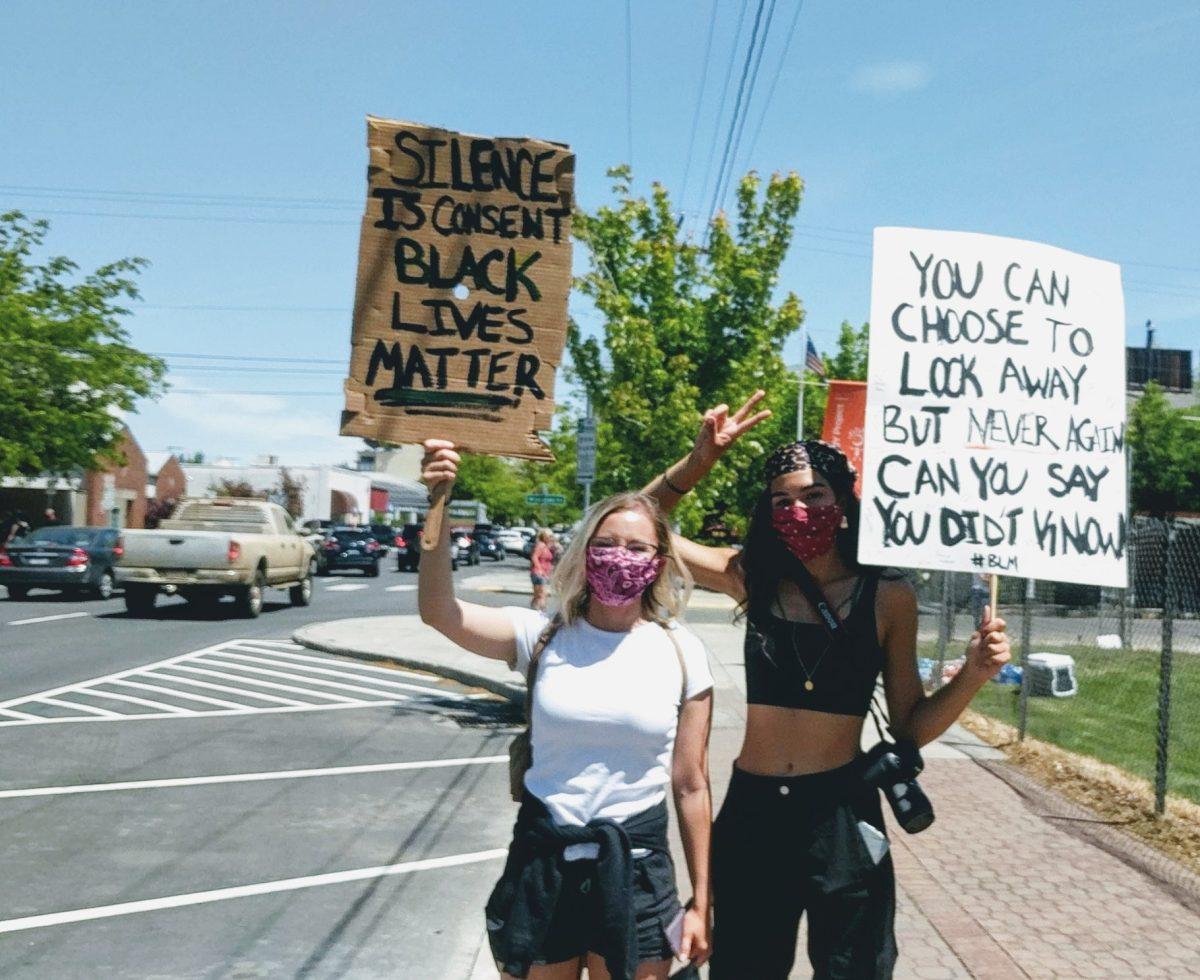Amber Reed/ The Broadside
There have been many recent discussions about how people who are not part of the black community can get involved in the Black Lives Matter movement. The movement gained a lot of traction in the United States after a video was released online showing the murder of George Floyd at the hands, or rather knee, of a Minneapolis police officer. Many people began to protest and have shown their support on social media as allies. An ally is a non-black person who supports the Black Lives Matter movement and actively participates in fighting for the cause.
Leaders of the protest against police brutality that took place in downtown Bend, Oregon, on June 2 were able to provide some insight into the subject. Maxwell Fridmen stated
“Check in with your POC (people of color) friends and ask how you can help and see what they need from you as an ally,” said Maxwell Fridmen.
There are resources available on the Black Lives Matter website. The site also has a web series uploaded available directly on the site, on Spotify, YouTube and many other platforms. The most recent episode description reads, “Black Lives Matter managing director Kailee scales is joined by South Bend Black Lives Matter members to discuss the role of community organizers on the ground.”
Elizabeth Longmire, a participant in the Bend protest, when asked what being an ally meant stated, “creating a space for black voices and re-educating ourselves on our own history.”
Protesting is one way to advocate, but it is not the only way. Advocating online by posting educational resources on social media or by taking the graphics that are provided on the Black Lives Matter website to raise awareness about police brutality is another option. There is a Facebook group that has been created by local activist Riccardo Waits. The group is called the Central Oregon Black Leaders Assembly and is open to new members. The goal of this group is to get community members involved in advocating for reform in the police department.
Petitions are available online to show support for reform. A recent example of petitioning in action is the petitions that were signed by citizens calling for justice for George Floyd. Those petitions were, in part, responsible for the arrest of all four officers who were involved in Floyd’s murder. Derek Chauvin, the officer responsible for his death, is now being charged with third-degree murder and second-degree manslaughter. The three officers who were present at his death, J. Alexander Kueng, Thomas Lane, and Tou Thao, are being charged with aiding and abetting second-degree murder.
There are many ways to make a difference. Speaking out can only help.








